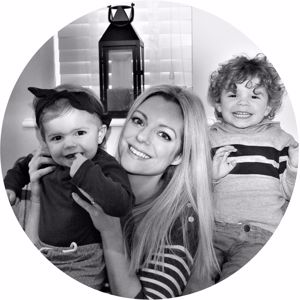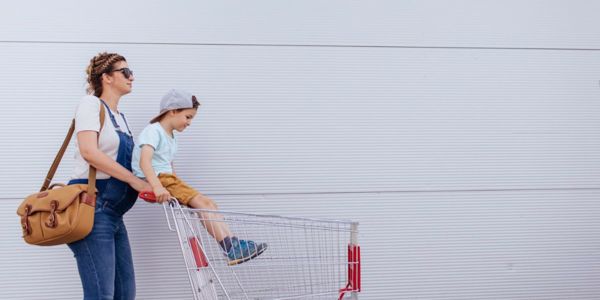Parental Alienation Awareness Day (PAAD) falls on 25th April and aims to help aid the recognition of parental alienation behaviours of a parent, towards a child, in order to stop or minimise the psychological damage that this can have on a young person.
What is Parental Alienation?
Parental Alienation is sometimes known as Hostile Aggressive Parenting, and in itself, is a form of child abuse. Despite this, however, Parental Alienation is not recognised within UK law within the Family Court system or Child Related Services, although it is recognised by WHO (World Health Organisation).
Parental Alienation usually follows separation or divorce and is described as a behaviour by a parent or trusted adult (whether conscious or unconscious) that could create alienation in the relationship between a child and a parent. This usually involves one parent attempting to turn the child against the other parent with a view to convincing the child that they wish to exclude the other parent from their life on a permanent basis. As a result of this influence, the child can often perceive one parent to be all good and the other parent to be all bad - often rejecting the ‘bad’ parent for no good reason.
This form of emotional abuse may be carried out in a number of ways:
- Talking about the other parent in an unfavourable light, badmouthing and belittling them
- Limiting, controlling or forbidding contact
- Putting pressure on the child to reject the parent
- Giving the child reasons to believe that the other parent does not love them or care about them
- Not allowing the child to talk about the other parent
- Working to destroy the relationship between the child and the other parent
- Communicate that they are ‘protecting’ their child from the other parent and make the child believe this to be true.
- Portray the other parent as an unsafe option
- Encouraging the child to betray the other parent’s trust
- Undermining their authority as the other parent.
- Believing that they and the child are the same person and should have the same views and feelings toward the other parent
- Brainwashing the child by making false and negative statements in an obsessive and continual manner.
- Divulging personal details to the child such as infidelity in an attempt to sway their opinion
- Insisting that all of the child’s belongings must stay at their house and not with the other parent
- Encouraging the child to want to stay with them by planning exciting activities when they are supposed to see the other parent.
Extreme, ongoing Parental Alienation can cause terrible psychological damage to children extending well into adulthood. Children often can’t remember any past positive experiences with the alienated parent, expressing fear and hatred towards them and being negative in their opinions about them. The Parental Alienation Awareness Day aims to stop this emotional abuse of children by educating adults in order to identify the signs that either they or others are displaying in time to stop long term damage.
My own experience with parental alienation:
I am no stranger to the symptoms and effects of parental alienation, although I hadn’t heard of the term until more recently.
During my later teenage years my parents went through a very messy divorce, where my Mother left the family home and my Father stayed there along with myself and my siblings. My younger brother and sister were still children at the time and this added to the difficulties when certain behaviours were displayed.
The alienation of my mother began with a certain dialogue from my Father which always had the same messages – that she was cruel, money grabbing, twisted, “sick in the head”, unsafe to be around and uncaring or unloving of anyone else but herself. That any decision to keep her in my life would be one I live to regret. The message became constant, almost brainwashing. In person, day and night when I was at home. Over the phone for hours at a time when I wasn’t. Then came the suggestions of how I should behave myself – refuse birthday presents and send them back. Ignore messages and calls. Refuse contact…unless to pass on the message of how bad a mother she truly was. Eventually, the message was very black and white – I either cut ALL contact with my Mother or I will be cut out of the family, with no contact with my younger siblings, with immediate effect. Of course, these messages weren’t just aimed at me, my siblings were all in the same boat.
My twin sister and I decided to keep in touch with our mother in secret, and from a distance. Once our younger sister turned 18, we told her and gave her the choice to resume contact with our mother – again, in secret. In the meantime, relations between my younger brother and my Father became strained (that’s a whole other story!) and whilst he was at home alone one evening, he was given the message from my Father (by a family member) that he was to pack his bags and leave. We decided that although he was still young, this was now the moment to let him know the truth as well…and so, after years of believing his mum had left and never made contact again, he was collected in the middle of the night and taken to live with her and try to rebuild that relationship.
Of course, the news of our contact didn’t go down well with our Father, and after telling a few ‘tall tales’ which resulted in the majority of our extended family refusing to have anything to do with us, he wrote us all a letter. These letters were essentially a big ‘middle finger’ and a wave goodbye, in written form. Exactly 10 years ago.
If you’d have said to me 10 years ago, reading that letter…that ten years later I’d be married, with 2 children, quarantined at home in the middle of a Coronavirus outbreak, wondering if my Dad was still alive, writing a blog post about a scenario I was sure would resolve itself (but didn’t) - I wouldn’t have believed it. Now, at least there is a name for it, and an agreement that it equals abuse. It all makes much more sense with the information I have to hand now. This was never going to turn out any differently, because this is what ‘Parental Alienation’ is. The control and manipulation of a relationship between a parent and a child, resulting in alienation.
In raising awareness of this day, and what it means – we aren’t just helping adults to recognise the signs and symptoms in themselves and others and potentially stop any future damage…we are also giving a name, or a label, to a past experience for many children and adults who have been subjected to parental alienation. By raising awareness and naming this set of behaviours, we are validating the feelings of those affected, and letting them know that it isn’t okay, and it isn’t uncommon to still feel affected by it.
Your Baby Club and Center Parcs are giving you a chance to win a family break in a Woodland Lodge at a UK Center Parcs village of your choice.






